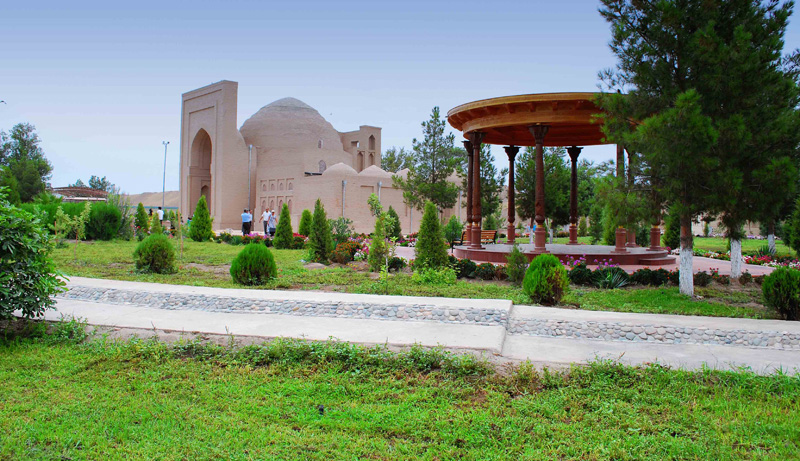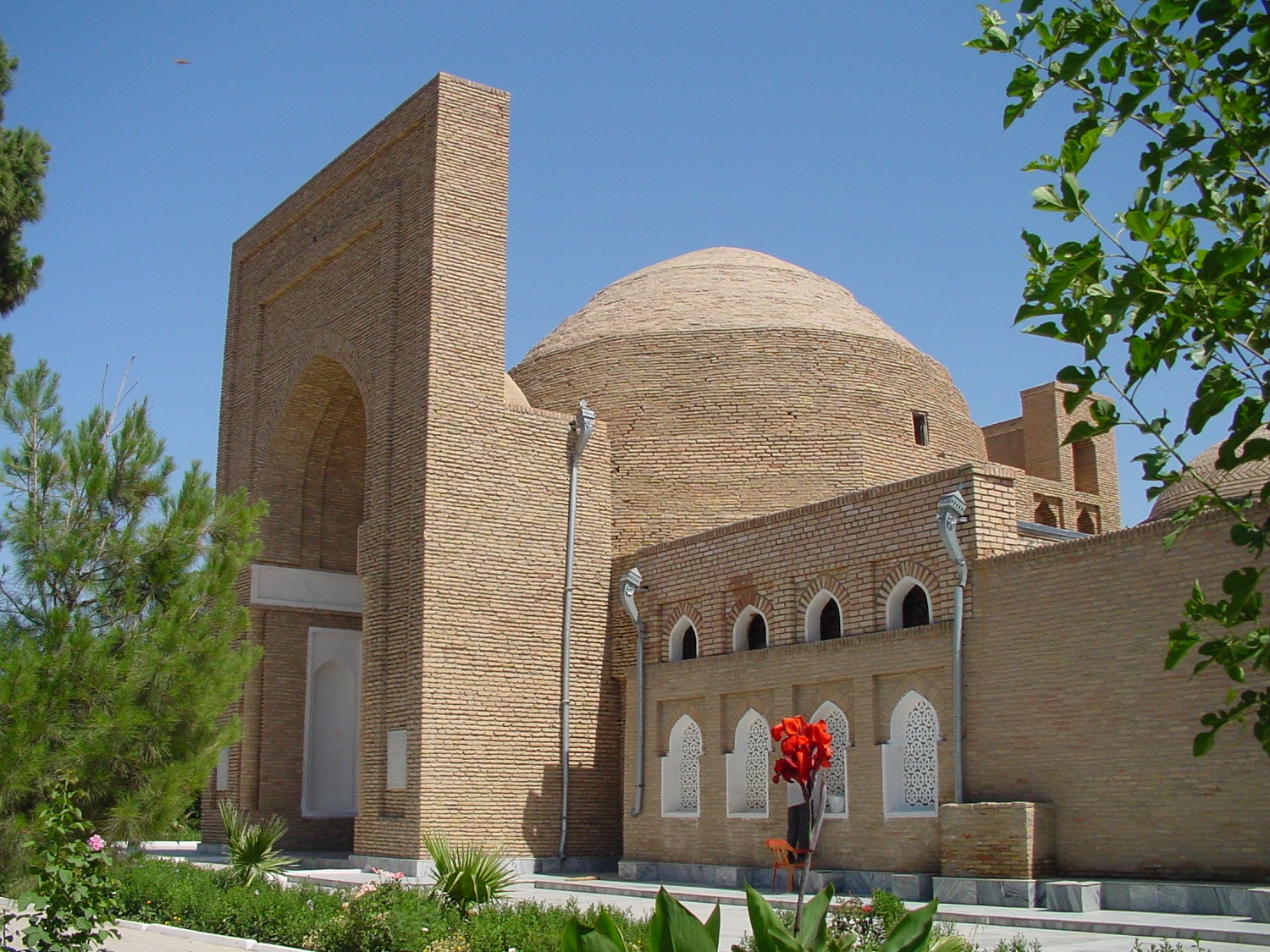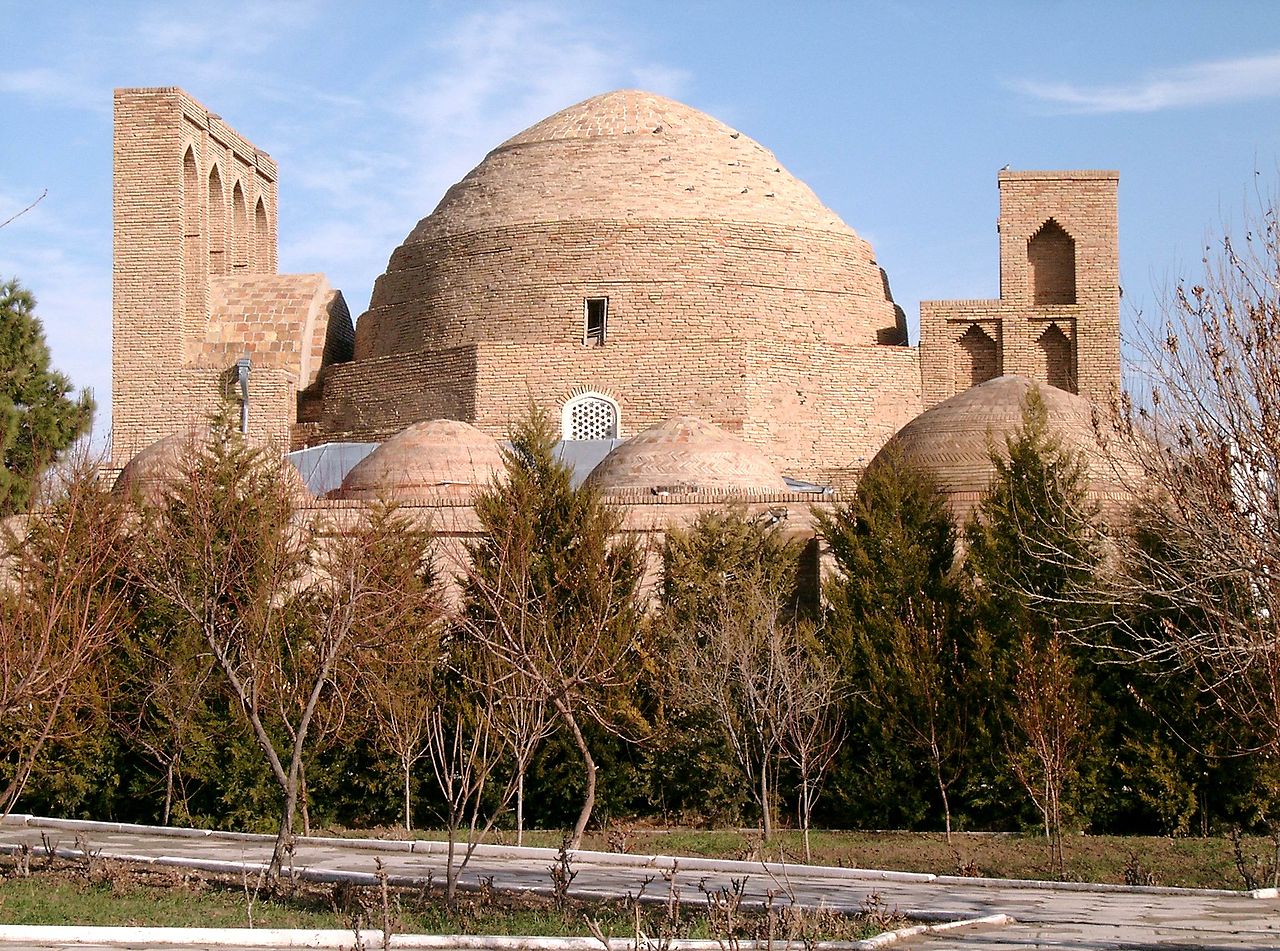Al-Ḥakim al-Tirmidhi, full name Abū ʿAbd Allāh Muḥammad ibn ʿAlī al-Ḥakīm al-Tirmidhī al-Ḥanafī (d. ca. 869), not to be confused with the famous hadith master Abū ʿĪsā al-Tirmidhī, was a Sunni jurist (faqih) and traditionist (muhaddith) of Khorasan, but is mostly remembered as one of the great early authors of Sufism. His full name is: Abu Abdullah Muhammad bin Ali bin Hasan bin Bashir (in some sources it is 'Bishr') Al Hakim At-Termizi. He is locally known as At-Termizi or Termiz Ota ("Father of Termiz city").
Tirmidhi was apparently born between 820 and 830 AD in Termez, Khorasan. His father was a scholar of hadith and a jurist; his early education appears to have been very orthodox. He was reared as a scholar of hadith and fiqh (law), more specifically, the Hanafi school of law that was dominant in eastern territories of Islam. The range of Tirmidhi's education did not include the non-Islamic sciences, such as Greek natural science and philosophy. His subsequent reference to learning the use of the astrolabe, implying a knowledge of astronomy and mathematics, has been given different interpretations. "There is no trace of influence from 'natural science' in his writings." However, his general pursuit of knowledge gained him the name of "al-hakim" (the sage). He renounced his use of the astrolabe after being told to do so in a dream to which he attached significance












